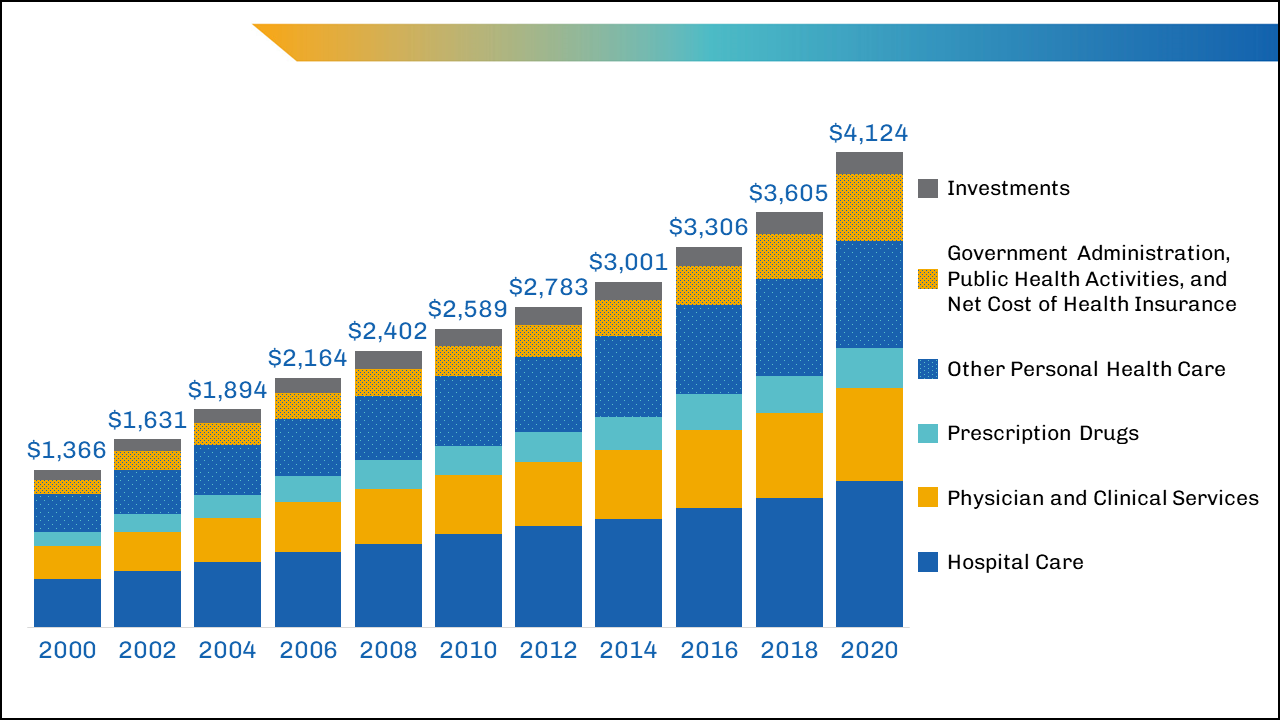Healthcare RCM: Maximize Earnings Cycle Monitoring for Better Outcomes
Wiki Article
Recognizing the Function of Healthcare RCM in Enhancing Monetary Efficiency and Patient Complete Satisfaction
Browsing the complexities of Healthcare Income Cycle Monitoring (RCM) is crucial for attaining ideal monetary performance while simultaneously elevating patient fulfillment. RCM's capacity to enhance invoicing, ensure accurate coding, and accelerate cases processing stands as a keystone of modern health care procedures. Nevertheless, the nuanced interplay between these elements warrants a better exam to completely value their influence on both doctor and patients. As we check out the transformative potential of RCM, inquiries about its tactical implementation and future developments bid, appealing insights that could redefine sector standards and client experiences alike.

Trick Elements of RCM
In the complex landscape of healthcare, Income Cycle Management (RCM) is crucial in guaranteeing economic stability and operational efficiency. Client enrollment and qualification verification are foundational steps, guaranteeing that precise patient info is recorded and insurance policy protection is verified prior to services are made.
Cost capture is another essential part, entailing the accurate recording of services supplied to individuals. It makes certain that all billable services are represented, thus making best use of revenue capacity. Simultaneously, medical coding translates patient experiences into standard codes, which are crucial for invoicing and regulative conformity.
Cases entry and monitoring follow, involving the preparation and submission of insurance claims to payers. This process requires precise interest to detail to minimize errors and prevent delays. Rejection administration is an aggressive technique to fix and resolve denied cases, securing income streams.
Finally, repayment uploading and patient collections finish the cycle, ensuring settlements are accurately tape-recorded and exceptional balances are sought. With each other, these components develop a durable structure that sustains the financial and functional wellness of healthcare organizations.
Effect On Financial Efficiency
Effective Income Cycle Management (RCM) significantly influences a healthcare organization's financial performance by maximizing cash circulation and lowering earnings leak. RCM includes the extensive billing and collection procedures that guarantee doctor effectively manage their financial purchases from client enrollment to final repayment. By enhancing these processes, companies can reduce rejected claims, accelerate repayment cycles, and boost total financial health.Financial performance is improved through meticulous administration of payment procedures, which includes exact coding and prompt entry of claims. This lowers the possibility of insurance claim denials and rejections, which can dramatically hinder earnings circulation otherwise dealt with promptly. Furthermore, incorporating advanced innovation options promotes real-time monitoring of claims and monetary metrics, supplying healthcare managers with the tools necessary to make informed calculated choices.

Enhancing Client Contentment
While optimizing monetary efficiency is a key objective of Income Cycle Management (RCM), it additionally plays a pivotal function in enhancing client fulfillment. By lowering management burdens, RCM enables healthcare service providers to concentrate a lot more on individual treatment, which straight improves individual contentment.
RCM also enhances individual complete satisfaction with reliable communication. By maintaining a detailed data source of individual information, RCM helps with boosted communication between people and health care providers, guaranteeing individuals feel notified and valued.
Approaches for Efficient RCM
Achieving reliable Income Cycle Monitoring (RCM) requires health care companies to carry out a set of calculated practices that guarantee monetary stability and functional effectiveness. One vital technique is the fostering of technology-driven remedies, such as integrated software application platforms that simplify payment processes, lower errors, and boost information precision. These systems enable real-time tracking of monetary metrics, enabling punctual identification and correction of inefficiencies.An additional strategy is the standardization of procedures across the profits cycle. Healthcare RCM. This involves establishing regular policies for individual registration, insurance verification, and declares handling. By making certain that all team stick to these requirements, companies can quicken and lessen discrepancies repayment collections
Team training and development also play a critical role in effective RCM. Well-trained employees can successfully browse complex invoicing treatments and guidelines, improving and decreasing rejections capital. Regular updates on plan modifications and ideal methods help preserve a experienced and educated workforce.
Future Trends in RCM
As medical care companies boost their Income Cycle Administration (RCM) strategies with modern technology and standardized processes, focus is currently turning towards the future fads forming this essential area. One substantial trend is the integration of artificial intelligence (AI) and maker understanding to automate intricate tasks, such as cases processing and anticipating analytics. These modern technologies are anticipated to reduce mistakes, accelerate deal times, and provide data-driven understandings for much better decision-making.
Additionally, the shift in the direction of value-based treatment remains to influence RCM techniques - Healthcare RCM. Health care suppliers are anticipated to increasingly concentrate on client end results and fulfillment, demanding RCM systems that can suit new reimbursement versions. check this site out This shift will certainly call for more detailed information collection and evaluation to effectively report and determine on performance metrics
Interoperability is another arising concern, as seamless data exchange in between inconsonant systems ends up being essential. Enhanced interoperability will assist in more accurate patient details sharing, lowering administrative worries and improving the person experience.
Final Thought
Medical Care Earnings Cycle Monitoring (RCM) significantly affects both financial performance and individual satisfaction by enhancing invoicing processes, making sure exact coding, and allowing punctual insurance claims entry. Efficient RCM reduces income leakage and accelerates capital, decreasing claim denials and expediting repayments. This efficiency promotes trust and satisfaction amongst people. RCM systems likewise help with much better communication and versatile payment alternatives, producing a patient-centered experience. Future RCM trends will likely concentrate on more integrating innovation to enhance these benefits.Navigating the ins and outs of Healthcare Revenue Cycle Management (RCM) is important for achieving ideal monetary performance while at the same time boosting individual complete satisfaction. RCM includes the extensive billing and collection procedures that make certain healthcare companies efficiently manage their financial transactions from client registration to last repayment. By lowering administrative worries, RCM allows health care carriers to concentrate more on patient treatment, which directly check that boosts patient contentment.
By keeping a thorough database of client info, RCM promotes enhanced interaction between individuals and healthcare companies, ensuring clients really feel educated and valued.Medical Care Earnings Cycle Administration (RCM) considerably affects both economic efficiency and patient contentment by maximizing invoicing procedures, making sure accurate coding, and allowing punctual insurance claims submission.
Report this wiki page